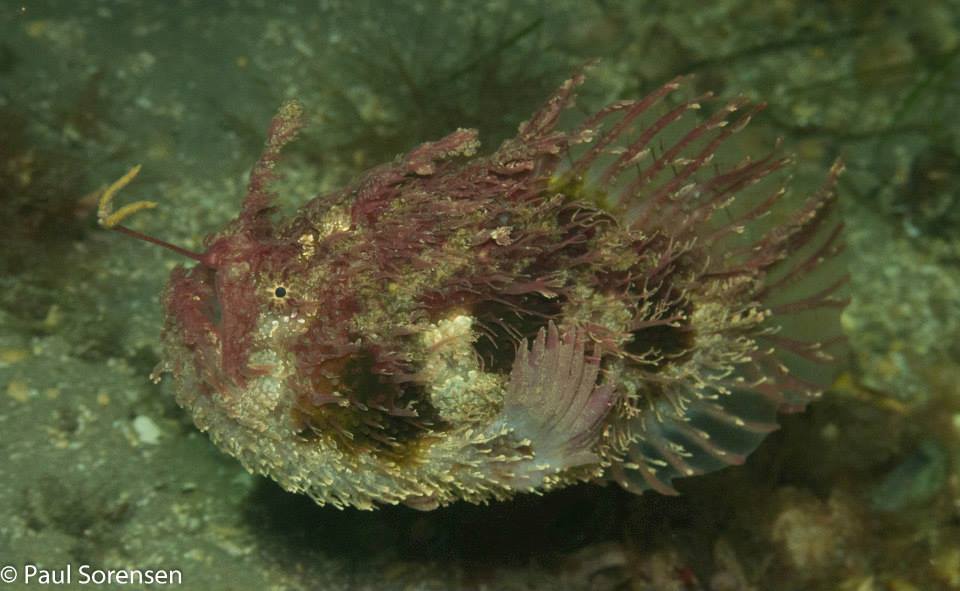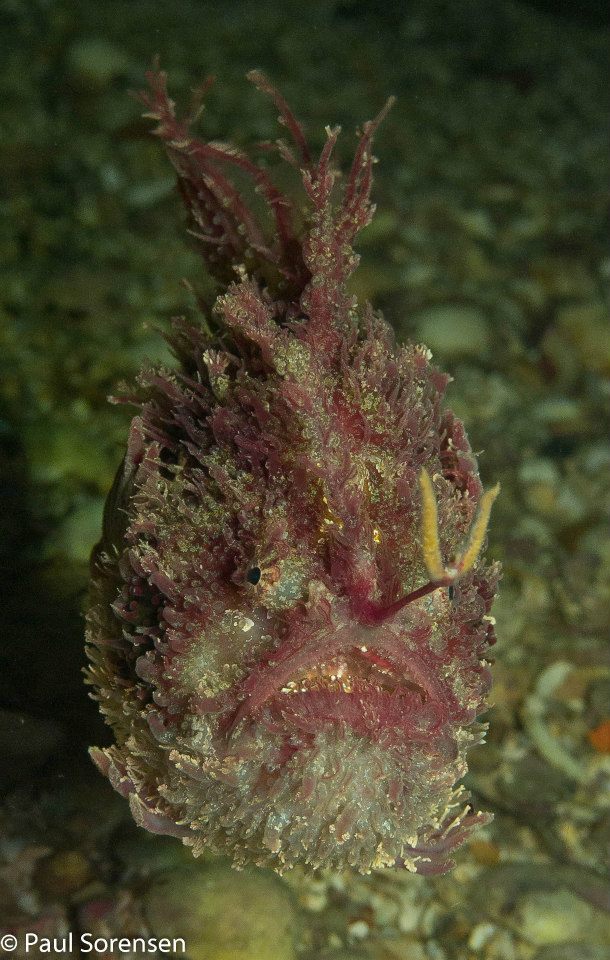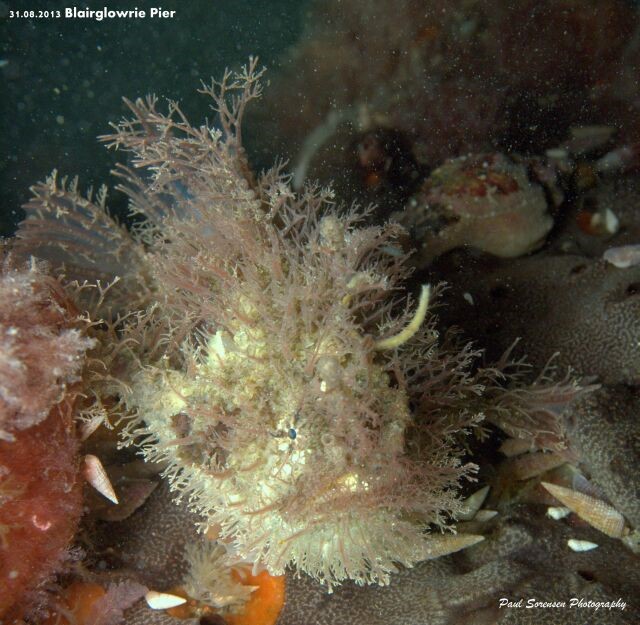You have 0 product(s) in your cart.
Anglerfish - Lophiformes
Order: Lophiiformes
- Anglerfish
- Bony fish named after their predation characteristics
- A fleshy growth from the fish’s head acts as a lure
- Some are pelagic and some are benthic
- Pelagic are most laterally compressed, whereas the benthic are dorsocentrally compressed with large up pointed mouths
- Most adult female ceratoid anglerfish have a luminescent organ called the esca at the tip of the modified dorsal ray (the illicium, or “fishing rod”)
- Purpose of the esca is to lure prey in the dark, deep sea environments
- The esca is also used to get males’ attention for mating
Scientific Name: Rhycherus filamentosus (Castelnau, 1872)
Common Name: Tasselled Anglerfish
Distribution: Endemic to temperate waters of southern Australia, from off Lakes Entrance, Victoria, to Point Sinclair, South Australia, and in northern Tasmania.
Summary: A moderately large and very well-camouflaged anglerfish with skin densely covered in long filaments, and a large fishing lure resembling a marine worm..
Habitat: Pilons at Piers/Jetty, live on rocky reefs that are covered in macroalgae
Depth: 2 – 60 m
Size: 0 – 23 cm
Colour: Colour varies from greyish colour to purplish colour, brownish to reddish with dark and light bars and blotches and a whitish belly
Body: Dorsal fin I+I+I, 12-13; Anal fin 7-8; Caudal fin 9; Pectoral fin 9-11; Pelvic fin 5. Body moderately large, oval, tail base short; skin smooth, without spinules, and densely covered in long filamentous appendages; illicium ('fishing rod’) tipped with a large U-shaped worm-like appendage (esca).
Diet: Carnivore – ambush predator
Reproduction: Like most anglerfishes found in southern Australian waters, females produce large demersal eggs that are protected until the young hatch.
Details:
References:
http://fishesofaustralia.net.au/home/species/3841#classification
Froese, R. and D. Pauly. Editors. (2020). FishBase. Rhycherus filamentosus (Castelnau, 1872). Accessed through: World Register of Marine Species at: http://www.marinespecies.org/aphia.php?p=taxdetails&id=282605 on 2020-05-19
Froese, R. and D. Pauly. Editors. (2021). FishBase. Rhycherus filamentosus (Castelnau, 1872). Accessed through: World Register of Marine Species at: http://www.marinespecies.org/aphia.php?p=taxdetails&id=282605 on 2021-07-03



References:
Scientific Name: Rhycherusfilamentosus (Castelnau, 1872)
Common Name: Tasselled Anglerfish
Distribution: Endemic to temperate waters of southern Australia, from off Lakes Entrance, Victoria, to Point Sinclair, South Australia, and in northern Tasmania.
Summary: A moderately large and very well-camouflaged anglerfish with skin densely-covered in long filaments, and a large fishing lure resembling a marine worm..
Habitat: Pilons at Piers/Jetty, live on rocky reefs that are covered in macroalgae
Depth: 2 – 60 m
Size: 0 – 23 cm
Colour: Colour varies from greyish colour to purplish colour, brownish to reddish with dark and light bars and blotches and a whitish belly
Body: Dorsal fin I+I+I, 12-13; Anal fin 7-8; Caudal fin 9; Pectoral fin 9-11; Pelvic fin 5. Body moderately large, oval, tail base short; skin smooth, without spinules, and densely covered in long filamentous appendages; illicium ('fishing rod’) tipped with a large U-shaped worm-like appendage (esca).
Diet: Carnivore – ambush predator
Reproduction: Like most anglerfishes found in southern Australian waters, females produce large demersal eggs that are protected until the young hatch.
Details:
References:
http://fishesofaustralia.net.au/home/species/3841#classification
Froese, R. and D. Pauly. Editors. (2020). FishBase. Rhycherusfilamentosus (Castelnau, 1872). Accessed through: World Register of Marine Species at: http://www.marinespecies.org/aphia.php?p=taxdetails&id=282605 on 2020-05-19
Froese, R. and D. Pauly. Editors. (2021). FishBase. Rhycherusfilamentosus (Castelnau, 1872). Accessed through: World Register of Marine Species at: http://www.marinespecies.org/aphia.php?p=taxdetails&id=282605 on 2021-07-03






